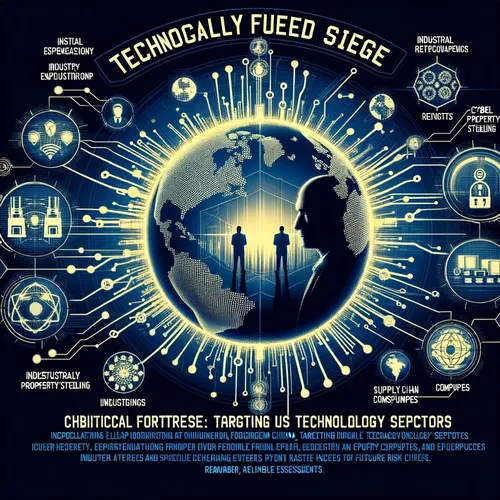Silicon Siege: China's Hacking Blitz Targets Microsoft, Nukes & Trade Secrets
- Author
- Quiet. Please
- Published
- Sun 27 Jul 2025
- Episode Link
- https://www.spreaker.com/episode/silicon-siege-china-s-hacking-blitz-targets-microsoft-nukes-trade-secrets--67145231
This is your Silicon Siege: China's Tech Offensive podcast.
You’re tuned in with Ting, your favorite cyber-sleuth and eternal sentinel of all things China and hacking—and let me tell you, these past two weeks have been nothing short of a Silicon Siege. Picture this: it’s July 18th, a Friday night when most folks are prepping for the weekend. But somewhere between coffee refills and late-night code pushes, Chinese-state affiliated hackers unleashed a massive offensive by exploiting Microsoft SharePoint vulnerabilities. Microsoft itself named three usual suspects: Linen Typhoon, Violet Typhoon, and Storm-2603, all orchestrating a wave of industrial espionage so sprawling it affected governments, critical infrastructure, and companies across the globe.
Now, if you thought your secrets were safe in the cloud, catch this—these hackers targeted on-premises systems still living in the early 2020s, harvesting juicy credentials like password hashes and session tokens, which let them impersonate users and lurk inside networks long after patches rolled out. Even after Microsoft shipped fixes, attackers found sneaky ways to bypass them using stolen authentication keys. According to Interesting Engineering, this wasn't just digital graffiti—organizations plain as day included the U.S. National Nuclear Security Administration, the keepers of nuclear stockpiles. Thankfully, Bloomberg reports no classified data got whisked away... this time.
And what about the supply chain? Imagine Microsoft’s global support teams, including China-based engineers, holding the keys—accessing critical government cloud systems, not just for the Pentagon but for the Departments of Justice, Treasury, and Commerce. After a blistering ProPublica exposé, Microsoft abruptly announced it was cutting off China-based teams from Pentagon support—finally addressing supply chain security that, as security expert Adam Meyers puts it, is the “skeleton key” to adversarial backdoors.
The Senate, led by Joni Ernst, wasted no breath launching the INNOVATE Act to fortify IP protection, as the FBI estimates intellectual property theft costs the U.S. between $225-600 billion each year—with China leading the industrial espionage leaderboard. For American innovators, the stakes are high: more screening, slower collaboration, but less risk of waking up and finding your invention powering the competition.
Here’s the strategic kicker—China’s cyber offensive isn’t just about stealing tech; it’s about sensing, shaping, and nudging the rules of global tech dominance. Shanghai just hosted the World Artificial Intelligence Conference, with Premier Li Qiang proposing global AI governance, while—across the Pacific—the U.S. tightens chip exports, Nvidia licenses, and security mandates.
So, what’s next? Industry experts like Kemba Walden warn, “Assume your network’s been compromised,” and urge everyone from system admins to CEOs to double-down on layered cyber defenses, zero trust, and a bias toward the paranoid. Our future? It’s a gridlocked tech arms race, a game where the only unwinnable move is standing still.
Thanks for tuning in with Ting. Don’t forget to subscribe for more sharp takes and cyber escapades. This has been a quiet please production, for more check out quiet please dot ai.
For more http://www.quietplease.ai
Get the best deals https://amzn.to/3ODvOta
